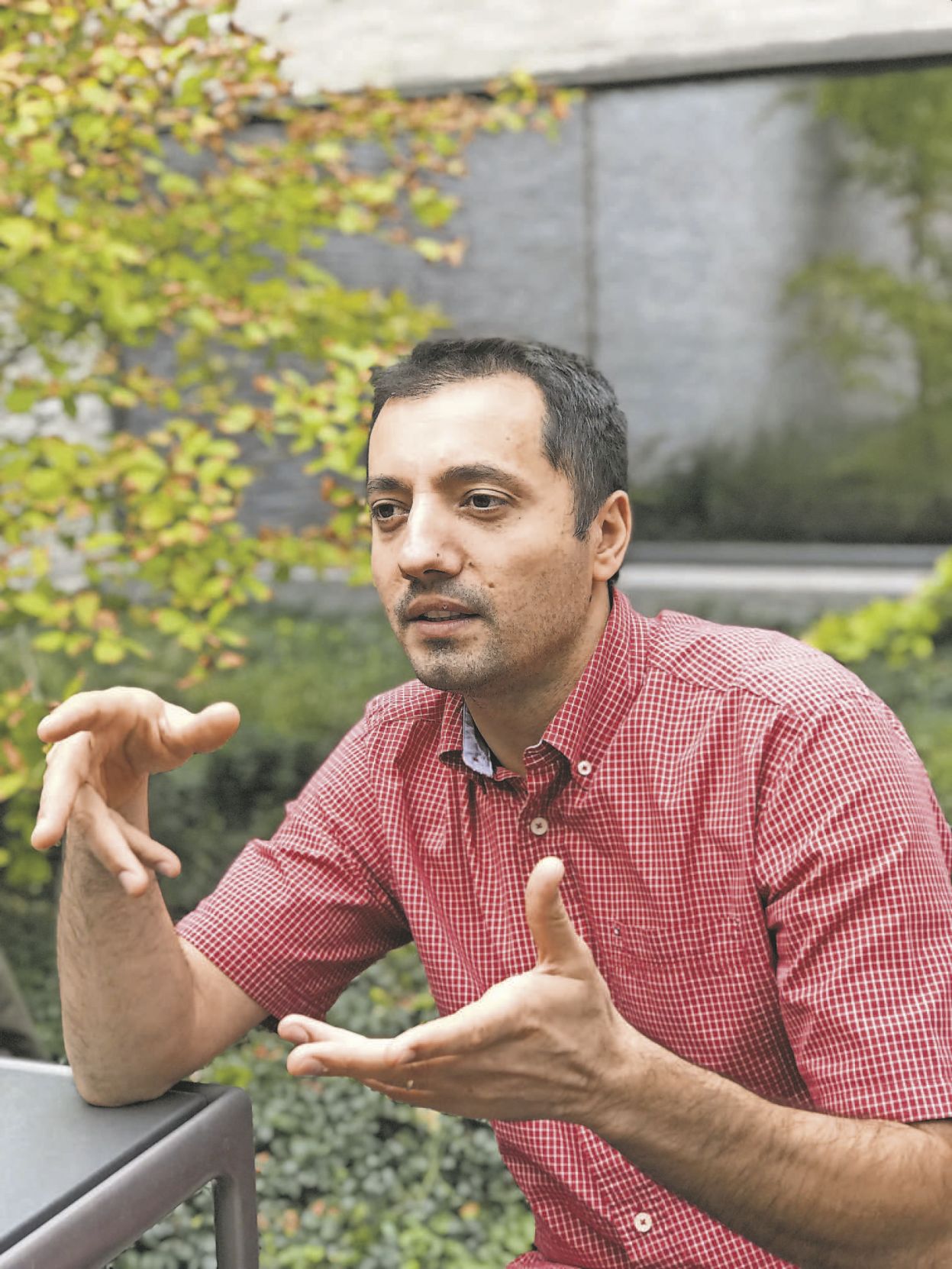By Huck Fairman
Princeton, as most readers know, has become a research center for the environment and energy. Princeton University’s several schools and departments are joined by Climate Central and the Stony Brook-Millstone Watershed Association, and some of the evolving science has been put into practice by the town’s Sustainable Princeton office. A number of local secondary schools offer up-to-date science and sustainability studies, as well as classes on the environment.
The university’s Andlinger Center for Energy and the Environment, whose new, innovative building opened in 2016, supports a number of teams conducting research into energy efficient technologies that can respond to the growing understanding of our environmental situation and systems.
By chance I met a senior researcher Dr. Michael Bozlar, who works in the team of professor Forrest Meggers, with graduate and undergraduate students researching and extending the energy efficiency of heating and cooling systems for the built environment. Meggers, the director of the CHAOS lab – the ironic acronym stands for Cooling & Heating for Architecturally Optimized Systems – is an expert in the field of architecture and building technologies which can enhance energy efficiency, and find uses for waste water.
While touring the lab facilities, I met Nicholas from London, and James from Canada who were working on designing more reliable motion and heat sensors to control heating and cooling systems. According to them, not all currently available sensors are dependably accurate. They were also researching how such systems can detect polluted air for the purpose of improving air quality in buildings.
In addition to working with these undergraduate students, Bozlar is also actively investigating new materials and technologies for green, energy-efficient cooling systems, with graduate students, Eric from Cinnaminson, N.J.; Dorit from New York City; and Hongshan from Harbin (China).
Arriving from France in 2010 as a postdoctoral researcher, Bozlar had done his PhD in the field of nanomaterials, specifically carbon nanotubes, for energy-efficient electronics devices and lightweight composites structures for aerospace. Since then, his research has focused predominantly on nanosciences, the field that studies materials at the atomic scale – tens of thousands times smaller than human hair – which can provide innovative, even revolutionary, physical and chemical properties, which offer the potential for vast, new multi-functionality.
Also at Princeton, Bozlar has been extensively working on a new material called graphene, for use in a multitude of applications, including energy-efficient tires or rechargeable batteries. For this project in particular, his major objective is to design new materials that can minimize rolling resistance in tires, and improve the longevity of batteries. His research has already resulted in the manufacturing and commercialization of composite materials with enhanced mechanical and thermal performances.
Beyond the above-noted research, he has been investigating applications for piezoelectric materials – those in which electric charges (and thus energy) accumulate in response to mechanical stress or force. Such a force could come from flowing water, or flexible flooring material responding to foot traffic. Again, the over-arching idea is to find economical and efficient sources of energy.
And finally, extending from his interest in and concern with climate change, he has recently joined the Climate Future Initiatives within the Princeton Environmental Institute. Like many researchers, he is keenly aware of the causes of, the impacts from, and the solutions to climate change. His professional contribution will continue to be researching new materials that can improve the production, usage, and storage of energy for a sustainable environment. By utilizing his expertise in materials science, he hopes to help develop those innovations that will be essential to solving the energy and environmental challenges we all face.

